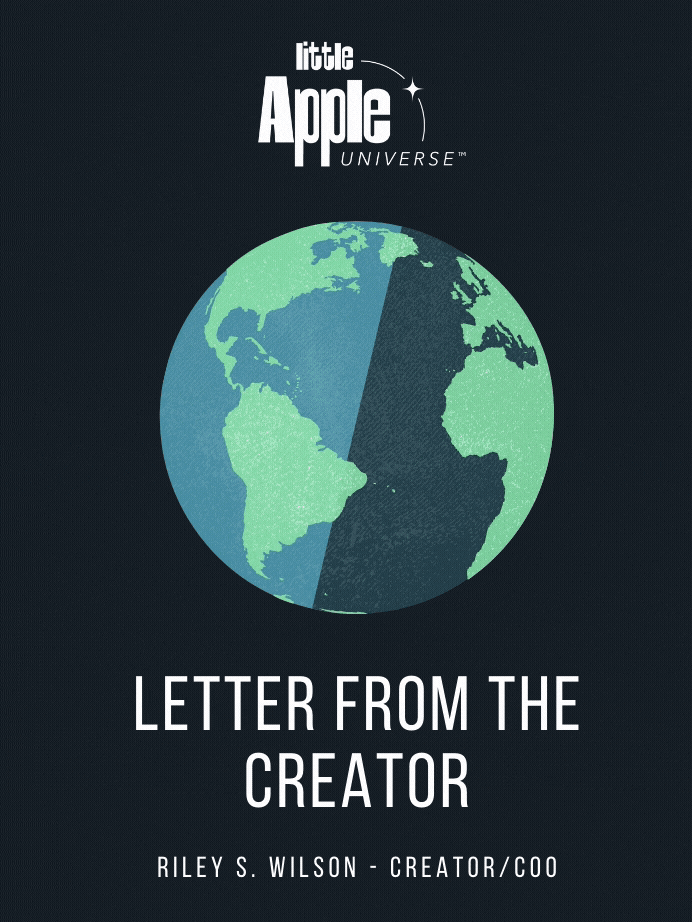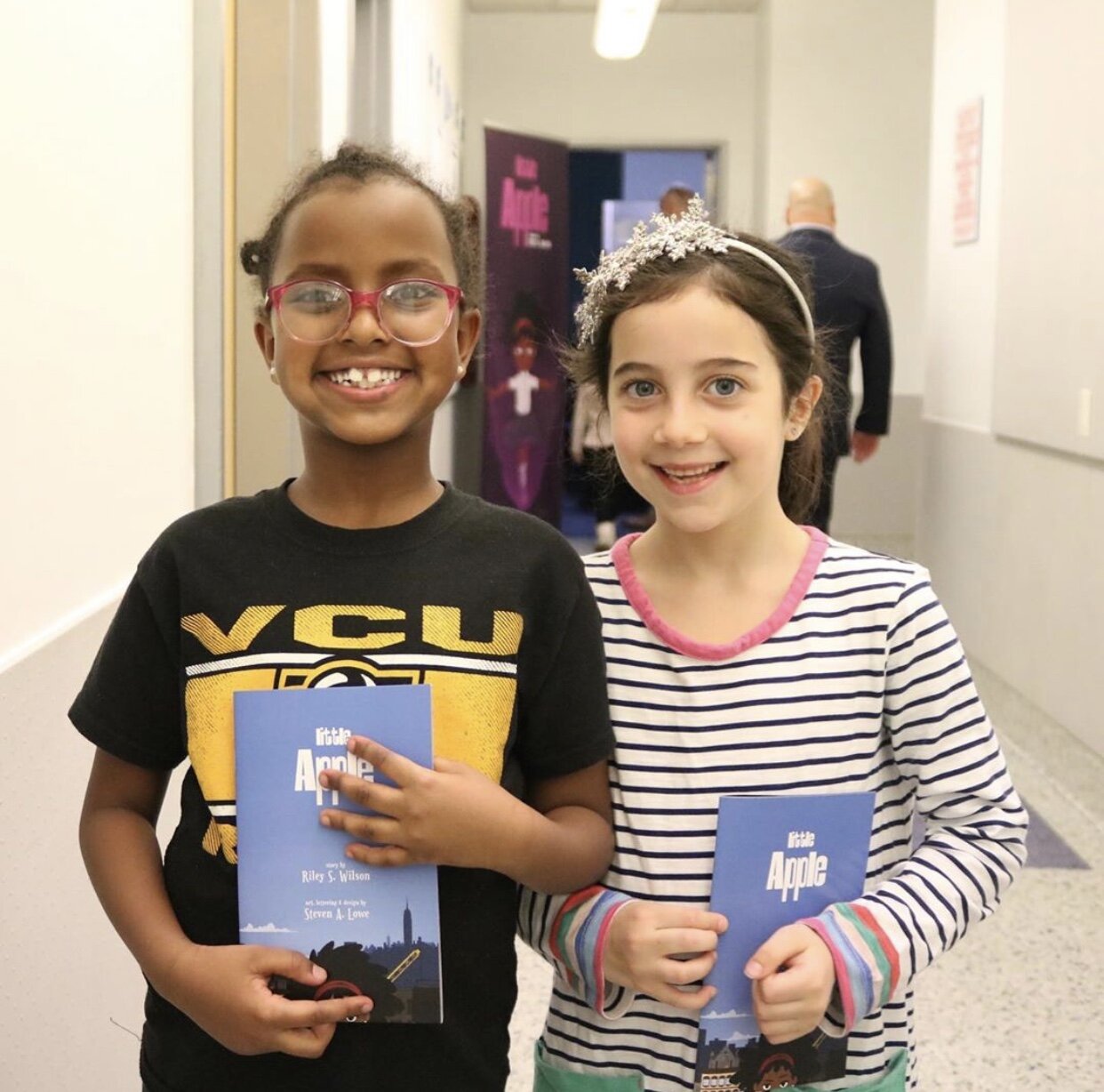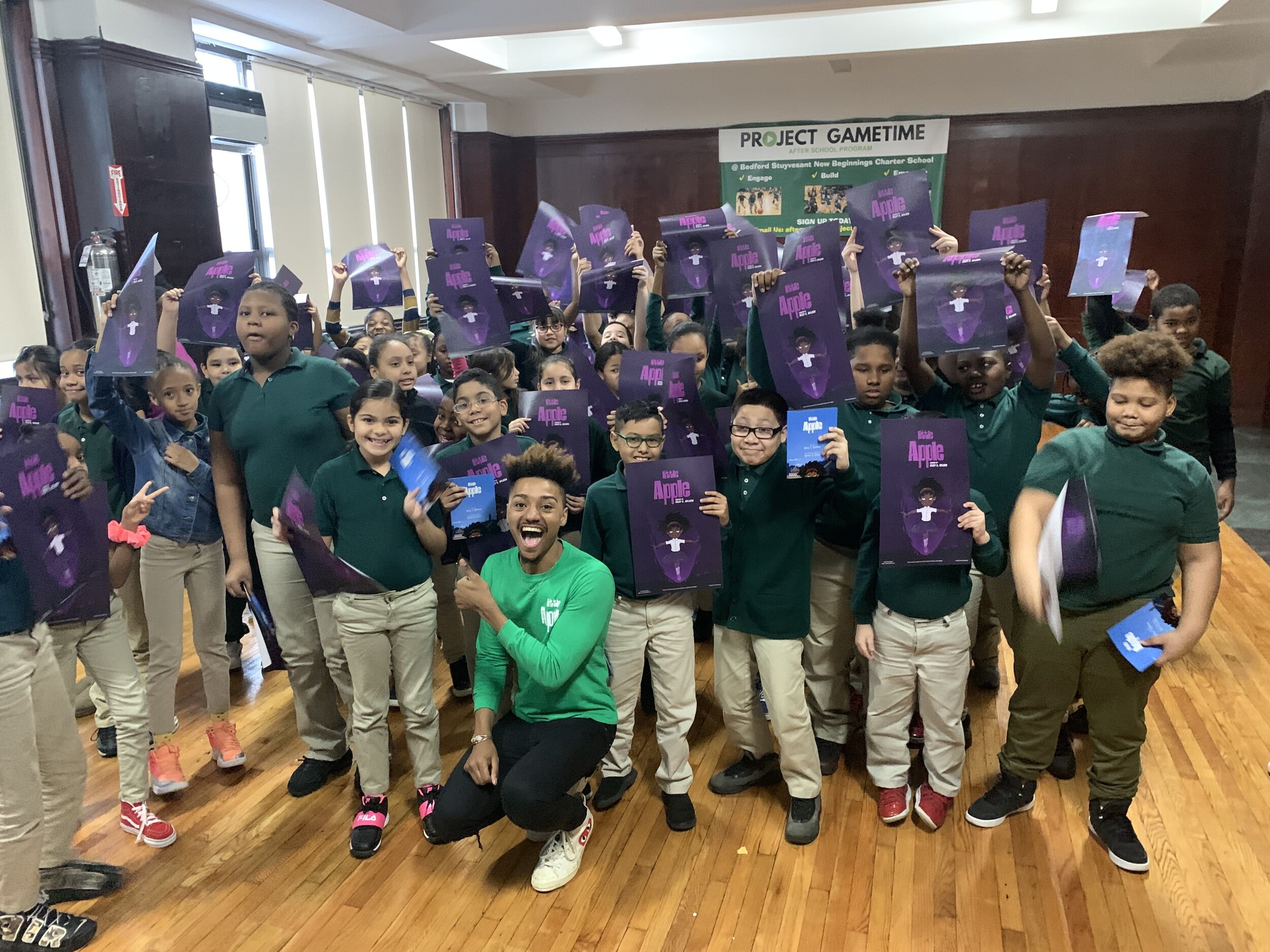How do we begin to engage kids in conversation about social justice?
by Barbara Gonzalez
We are living in a time in which the media has brought the appropriation, consumption and annihilation of Black and brown culture front and center. We are flooded as adults with such triggering imagery and conversation, but one thing we continuously fail to address is how it’s affecting the most vulnerable and inquisitive audience: our children.
Enter Little Apple, a new live-action sci/fi drama in development about a nine-year-old claircognizant (all-knowing) Black girl growing up in present-day Harlem, N.Y. Created by Riley Wilson, Apple’s story is one of a little Black girl with very big ideas and opinions on social justice issues such as racism, gentrification, and misogyny.
“We’re living in a space where the society is very anti-Black and anti-female,” Wilson said. “There’s a need for the imagery of having an opinionated, strong, passionate, and intelligent Black girl in the lead for anything. When I think about how often the world mistreats Black women and women of color in general, it’s a radical statement to drive Apple to the forefront.”
Little Apple Creator Joins YAHOO! Entertainment Build Series, Talks Building A Digital Universe
Little Apple executive producer, writer and director Riley S. Wilson, breaks down the sci-fi/drama series and what he envisions in the Little Apple Universe.
In a special interview with BUILD SERIES host Brittany Jones-Cooper, Wilson shared his vision for the Universe and how building community and leaning into one’s agency are the focal points of the Little Apple movement.
Meet Little Apple: On Redefining a “Child’s Place”
Lead Actor Milan Williams (Apple) leads a Q&A discussion at The Apollo Theater during a Little Apple screening experience.
By Jasmyne Epps
Gentrification. Racism. Microaggression. And the all-knowing 9-year-old prepared to tackle it all. Little Apple is a live-action sci/fi drama following a 9-year-old claircognizant (all-knowing) little Black girl growing up in a new Harlem, N.Y.
As if her know-it-all sass wasn’t enough, Apple now has the ability to know things beyond her means and age. Her university professor father is obsessed with her rapidly growing intellect and confidence while her mother, a registered nurse and the backbone of the household, is more concerned with Apple’s equally growing impudence towards authority. Apple, played by actress Milan Williams, is developing claircognizance abilities very quickly. With her newfound consciousness and knowledge comes a decision: assimilate and accept the world as is or use her abilities to speak up. The series is executive produced by Lisa Cortes and writer/director Riley S Wilson. Blossom chatted with Riley S. Wilson for the exclusive on the standout series.
Blossom: What was the inspiration behind the series?
Riley S. Wilson: I have a beautiful 15-year-old sister who is very intelligent and very opinionated. Today, as we’ve seen in the media and culture, a Black girl like that is viewed as a threat, cue Senator Kamala Harris, Angela Rye, etc. When I look at my sister, I see the future. I want to protect her, elevate her. However, we live in a society that for all intents and purposes, is very anti-Black and anti-female. My sister has an uphill battle if she wants the same rights as someone a part of the dominant patriarchal and misogynistic society. I wanted to create something that she could see herself in; something that would give her the permission and authority in her own right to live as a strong Black little girl unapologetically, proudly and intelligently.
Blossom: Will “Little Apple” touch on gentrification and “SoHa”? What other themes will be explored in the series?
Riley S. Wilson: Yes, as heard in our “Making Apple” podcast, which documents and explores the production of the Little Apple series, gentrification is the theme of the first episode of the series. Other themes include Black Girl Magic, The Limitations of Liberal Allies, Parenting While Black, Microaggressions and more.
Blossom: Why did the “Little Apple” creative team choose to use a child’s perspective to tackle such heavy, timely issues?
Riley S. Wilson: For some odd reason, adults assume that when you say “stay in a child’s place” that that’s exactly what children will do. Dismissing them, their opinions, and experiences is a missed opportunity. They still listen and think and consume the same content we consume as adults. Society just doesn’t engage with them on that level. We assume they don’t have a right to opinion. Well, today is a new day. Kids are on social media, Google, Facebook—they’ve seen the dash cam video of Philando Castile being murdered by police. They know who Sandra Bland is; they’ve said her name. They’re aware of how people have treated the Obamas over the years. They’ve experienced microaggressions and they’re very aware of the world. Maybe we should converse with them and hear them out. They may be able to lead us where no patriarchal misogynistic racist society has led us before. Also because my grandma always said, “out of the mouths of babies…”.
Blossom: Why does the world need “Little Apple” now?
Riley S. Wilson: Have you seen the news?
Blossom: Tell us about your casting process.
Riley S. Wilson: When casting, we’re not just looking for talent. We’re looking for people who have a curiosity for the content we’re producing and racial and social justice. I found a very curious Milan Williams a year ago and have since focused on fueling that curiosity and educating her on the content of the scripts—from misogyny to gentrification to patriarchy. “Little Apple” is a direct reflection of our times, so this is very important to our work.










